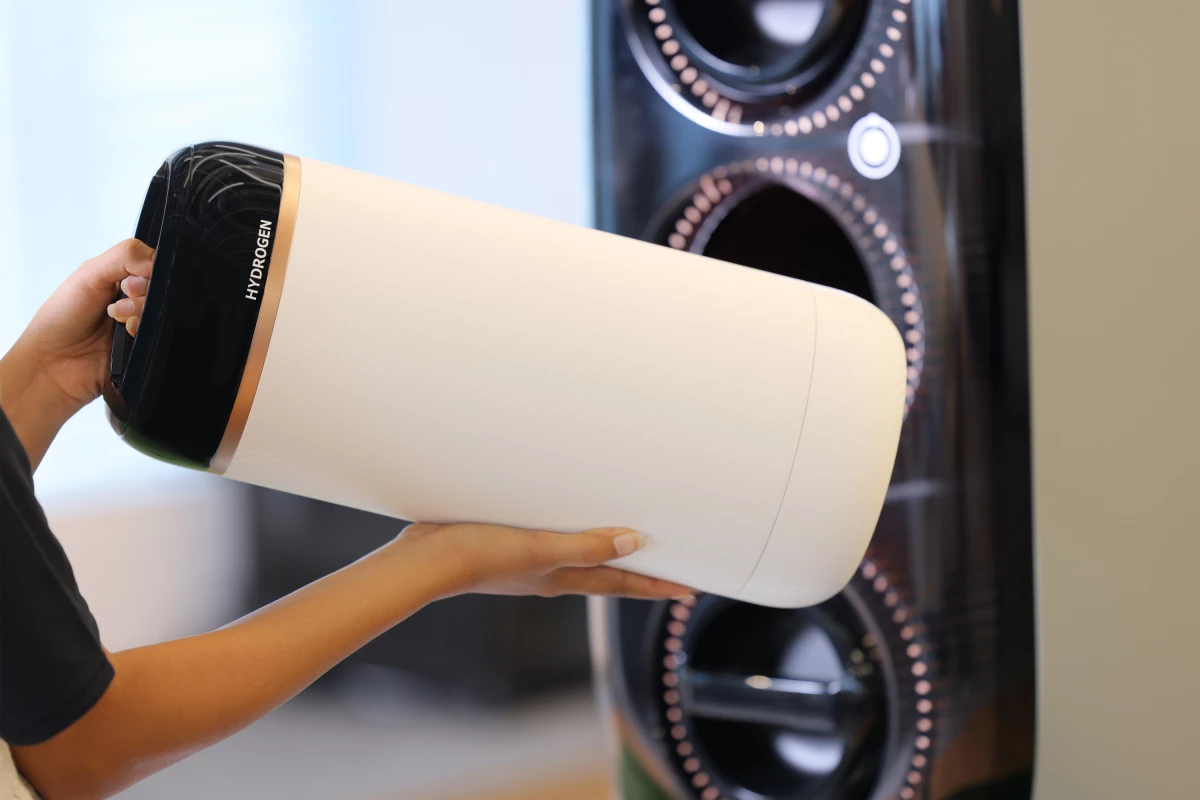Toyota wants hydrogen to power entire cities in Japan. Its subsidiary Woven Planet broke ground last February on a "Woven City" near Susono, which will act as a futuristic testbed for all sorts of urban planning ideas and technologies, including an expanded use of hydrogen fuel throughout the area.
Now, Toyota and Woven have presented a working prototype of a portable hydrogen cartridge that seeks to provide green energy for "a range of daily life activities in and outside of the home."
The cartridges are cylinders, 400 mm (16 in) long and 180 mm (7 in) in diameter, with a target weight of 5 kg (11 lb) when full. They'll carry around 3.3 kWh of useful energy, depending on the efficiency of the external fuel cell used to convert the hydrogen back into electricity. They've got little grab handles on the top, and they're designed to be slotted and twist-locked into place wherever they're used.
They could be used as swappable hydrogen batteries for electric cars, motorcycles and drones. They could be slotted into the walls of homes that aren't connected to a power grid, to provide electricity for the whole house through a fuel cell. They could be used to power heaters, or provide electricity in remote places. With a small fuel cell on top, they could be treated as large backup power banks for device charging.
Commercially, it seems they'll work a bit like BBQ gas bottles; you'll swap them out as needed and they'll be refilled at service stations. But the two companies seem to expect they'll be running a delivery service as well, getting hydrogen canisters out to wherever they're needed. Check out a video below.
Source: Woven Planet




